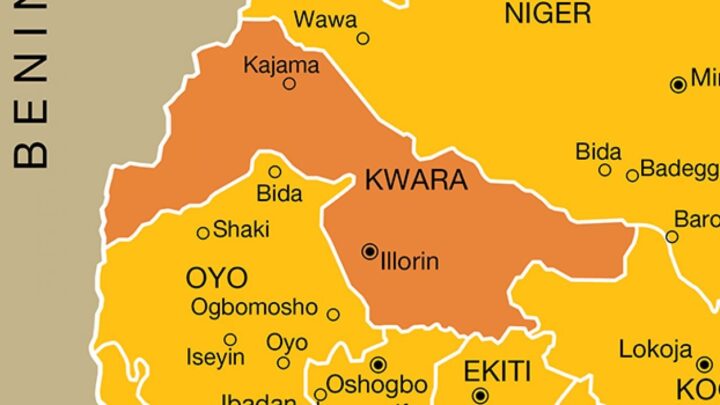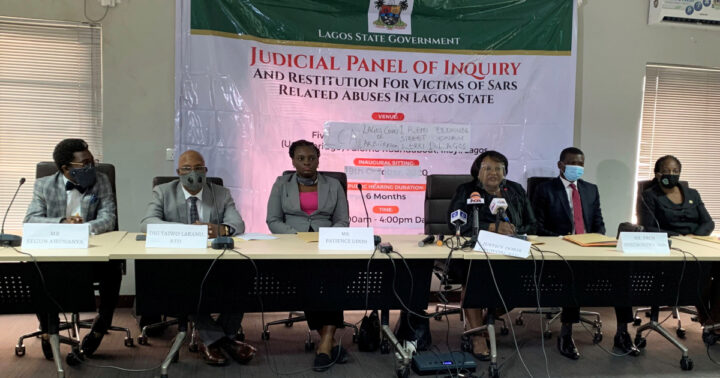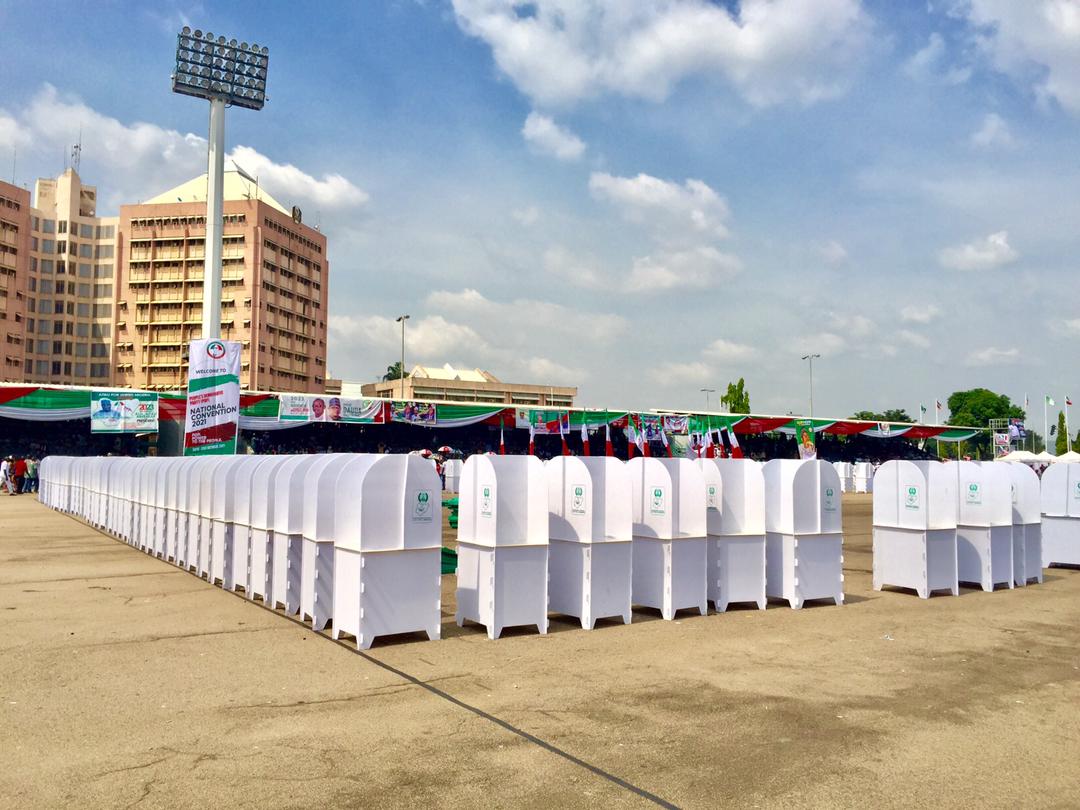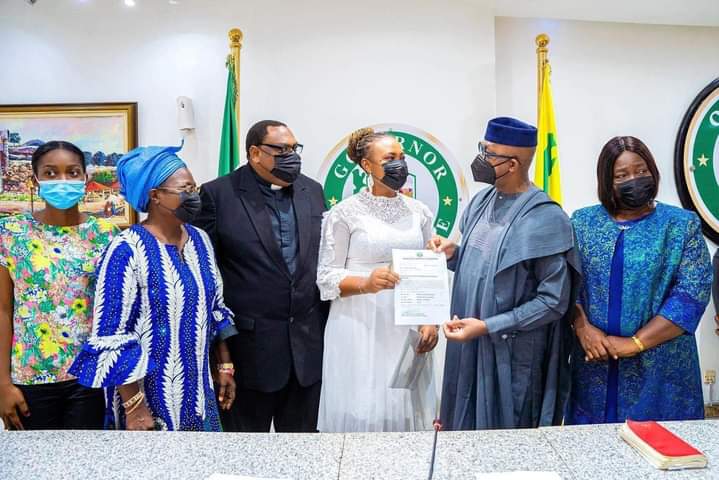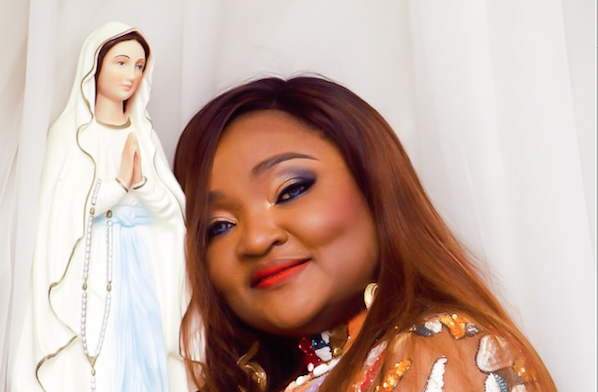“Who is an African?” This was a question asked, by someone, who I once thought was one of us (students), during our rowdy early days as 100 level students of the Department of Sociology at the University of Ilorin, about two decades ago. In a matter of minutes later, I discovered, he was in the class to teach us a course – ‘African Society and Culture’ (Soc-105). His name is Noah Yusuf (a professor and the current vice-chancellor, Al-Hikmah University, Ilorin).
The class, filled with “Jambitos”, was so rowdy that it was those of us who sat at the front rows that first got the memo that the man standing before us was the lecturer we were expecting. So, in no time, his calmness, composure and self-assuredness knocked senses into our noisy and rambunctious brains that the rigours of academic pursuit has just started.
As we got to discover his personality, he asked us again; “how do you identify an African”? Is it by language? Is it by the colour of his skin? Is it by geography or what? Our naive minds started probing. Chorus answers rented the atmosphere in the lecture room. But the lecturer admonished us to calm down, listen attentively, and we (at least I) listened with rapt attention.
He started with language, saying: “if you want to identify an African by language, there is no lingua franca among Africans” home and abroad. For instance, which of the African languages do you want to adopt as the language of identification of an African man; Yoruba, Kiswahili, Asante, Arabic, English, French, Igbo, Creole Hausa, Tiv, Ijaw or Igala? So language is a capital “No”.
Advertisement
He went further to say; “if you choose the colour of his skin in identifying an African man; we have black, brown, fair-skinned (that could be classified, generally as black); and white who are resident on the continent of Africa, especially in North Africa”. So skin colour is out of the equation.
If you also say, it is geography; meaning, those who reside on the continent of Africa; there are people who are Africans by origin and heritage, but are resident in places other than Africa, like the UK, the United States of America, Middle East, Caribbeans and South America. In that case, it nullifies the adoption of geography.
The lecturer then asked; how then do you recognise an African, if none of the above could be used?
Advertisement
We were getting more and more captivated by his manner of articulation and the direction of his lecture as sophomores. He then proceeded to tell/teach us that; an African can be identified, using the parameter of ‘African culture’. African culture is the total sum of the way of life of Africans. Culture is divided into material and immaterial. Material elements of culture are historical artefacts, the kind of dresses worn, the kind of houses they build and live in; while immaterial elements are, the philosophies, music, proverbs, religion(s), norms and values, among others.
Wherever you see an African man, traces of most of these elements will be noticeable in and around him. Little wonder, many of our forefathers who were taken in slavery, to the American continent, went there with the music (Calypso, according to Lagbaja), religions (African traditional religion, like Yoruba deities being worshipped in places like Brazil and the Caribbean); “Adirẹ” (tie and dye) fabrics and Ankara; tribal marks and other significant elements of the African culture, (like the wearing of dreadlocks etc). And with that, you can always identify him. An African man is he, in whose daily life, traces of these elements of culture can be found, without the use of a binocular.
Now to the crux of today’s article. Not long ago, there was a raging debate, as to whether Ilorin (emirate) an ancient and capital city of Kwara state, is a southern/Yoruba, or northern/Hausa-Fulani, city. It is a city in the north-central region of Nigeria, by the geopolitical calibration of Nigeria, per the 1999 constitution. Some would say, it is located in the ‘northernmost’ part of the south-west, while others would say; it is located in the’ southernmost’ part of the northwest, there are others who like to say, it is located in the ‘westernmost’ part of the north-central.
While the last description may not generate much controversy, the first two surely pumps up the ethnocultural cum geopolitical adrenaline levels of those who see Kwara, and by implication Ilorin, as belonging in the north, as well as those who believe it is a Yoruba city, and therefore, belonging in the south-west. The former tend to call it, “Ilorin Gerin Alimi”, while the latter would prefer “Ilorin Afonja”.
Advertisement
If one studies History very carefully, one would realise that none of the two protagonists (Between the “Ilorin Afonja Enudunju’yọ”, and “Ilorin Gerin Alimi”, schools of thought) is wrong or right. There are loads of historical facts to back up whatever claim each of the groups hold on to as to where the city belongs, as being the correct version of history that should determine who owns Ilorin and where it belongs in Nigeria’s geopolitical calibration. They are both sides of the same coin.
If you are a good student of history, you would have read about the history of how Ilorin and its rulership have metamorphosed from being subjects of Afonja (a Yoruba warlord) ruling dynasty, into that of the ruling house of the legendary Shehu Alimi (an Islamic preacher and a descendant of Sokoto caliphate). I won’t bore you with the details of how power changed hand from the former to the latter, as that is not the crux of this article; (you may Google-search and read). The crux is, where does Ilorin belong, between the north and the south? Is it a Yoruba, Nupe, or a Hausa-Fulani City?
The most amusing aspect is; if, as an Ilorin man you say you are not Yoruba, but a Fulani, how come, your first language is Yoruba and you don’t even understand a single word in the Fulani language, “Fulfulde” and you also answer a Yoruba name? Then who are you?
If you are, as an Ilorin man, saying; you are not a Fulani, but a Yoruba man, how come the title of the ruler has a very strong affinity to the Hausa/Fulani north – “the Emir” and not Olú or Ọba (Kabiyesi)? The same goes for other settlers in the town, like the Nupe, Borno, Malians among others, who might want to deny or claim, being none of the above, but something else.
Advertisement
The current vice-chancellor of the University of Abuja, and the pioneer, and immediate past vice-chancellor of the Kwara state university, Malete, Abdulrasheed Na’Allah, wrote in his book (Geography and culture of Ilorin – 2019); “The Ilorin culture is rooted in the history of ethnic amalgamation and pluralities. Ilorin became a multiethnic town with Hausa, Yoruba, Malians, Gobir, Nupe, and Fulani settlers”. This underscores the fact that Ilorin is a cultural melting-pot.
In one of my informal interactions with one of my former bosses, Kayode Aremu, the current general manager of Radio Kwara, who is an indigene of Ilorin, years ago; I referred to him as a Yoruba man. He was very swift in correcting me, saying he is not a Yoruba man. As he remonstrated with me, I asked; who/what are you sir; Hausa, Igbo or Nupe? And he responded thus; “I am an Ilorin man”. Not satisfied; I asked, what is Ilorin? He again responded; “Ilorin” is “Ilorin”. Interesting! And that got me thinking.
Advertisement
I have been in and around Ilorin for over two decades now, but only recently has it dawned on me that, Ilorin, even though, they speak Yoruba as a (first) language, have their own unique dialect, which nuances can only be understood by anyone who is conversant with the geo-ethnic composition of the town. Please note that the variant of Yoruba spoken in Ilorin is not unintelligible to other speakers of the language from other parts of the world. Their popular greeting; “Ẹ nlẹ faa” for instance is a mixture of Yoruba and Nupe/Hausa, (according to Ibrahim Abdulganiyu Jawondo, a professor at the Centre for Ilorin Studies, University of Ilorin – an institute that is at the forefront of the Ilorin historical/cultural renaissance); the way they dress, the way they mesh their Yoruba names with their Arabic names (which steamed from the religion of Islam being the dominant faith among the indigenes); their high sense of community; the way they conduct their marriage; the composition of their traditional institution (the hierarchy of chiefs (from the Magajis to the Alangwars) who owe allegiances to the paramount ruler-the Emir); the title of the paramount ruler himself – “the Emir”, the way they respect him, among other elements of the culture.
It is, therefore, safe to say at this juncture that there exists, a phenomenon called “The Ilorin culture”, which is a unique one, and it stands the people of Ilorin out, wherever they are present or gathered, which makes them neither Yoruba nor Fulani or any other settled tribe in the city for that matter. Another factor that solidifies and adds spices to the uniqueness of the identity of the people of Ilorin is the encouragement of intermarriage among these groups of settlers who make up the indigenes of the city, by the Emirs before now – a tradition that is also being sustained by the current Emir of Ilorin, “Mai Martaba ń Geri”, Ibrahim Zulu Gambari (CFR).
Advertisement
The identity of Ilorin as a people is therefore not a matter of crisis, but of politics; that is, politics of identity. Ilorin people, well know, who they are; where they are coming from; where they are; and where they are going. Kudos to the people for being able to carve for themselves, that ethnocultural niche, with which they now want to be identified, and are now being identified. That settles any debate or controversy surrounding the identity of the people. Ilorin is neither Hausa-Fulani, Nupe, Gobir, Malian nor Yoruba. Rather, “Ilorin is Ilorin”. It is of little, or no surprise anyway, if one considers the fact that, at the (“Better By Far”) University of Ilorin, there is now, the “Centre for Ilorin Studies”, CILS. The response of the “Emirati”, as the people of Ilorin Emirate (consisting of Ilorin Metropolis and other towns in its environs), love to call themselves, to the politics of identity, is a robust, but diplomatic one, and has a massive historical significance that generations unborn (Ilorin sons and daughter) would come to cherish.
Ilorin with about two million inhabitants, though a predominantly Muslim city, never stops receiving new settlers, Igbo, Ebira, Tiv, Igala, Ijaw, Idoma Ìjẹ̀bú etc, some of whom are not Muslims, as it expands. If you believe in the theory of evolution of culture, then be ready for a fiercer debate on the identity of the city, one or two centuries, from now. Perhaps, all that needs to be done then, would be to widen the scope and enrich, the concept of ‘Ilorin geography and culture’, for more plurality and inclusiveness.
Advertisement
Ilorin of the 15th century is quite different from Ilorin of the 19th century; just the way, the Ilorin of the 21st century would be miles different from those mentioned above, and will starkly be different from that of the 22nd and 23rd centuries. It is an evolutionary process.
Adebayo Abubakar writes from Ilorin. You can reach him via 08051388285 or [email protected]
Views expressed by contributors are strictly personal and not of TheCable.

